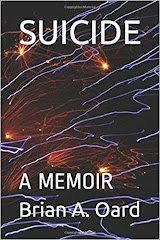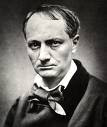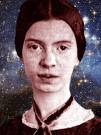The polymathic writer, critic, and translator Guy Davenport (whose essay "That Faire Field of Enna" (in The Geography of the Imagination) may be the best thing ever written about the work of Eudora Welty) remarks in one of his essays that the three great English epics are The Faerie Queene, Paradise Lost and The Decline and Fall of the Roman Empire. I like the idea of Gibbon--who deserves to stand alongside Fielding, Johnson and Sterne as one of the master prose stylists of eighteenth-century English--as the British Enlightenment's grand epicist, and I want to continue Davenport's list forward, adding Wordsworth's 1805/1850 Prelude as the epic of Romanticism (or perhaps, my inner libertine subversively suggests, that slot should be amply filled by Byron's bulging Don Juan...), Middlemarch as the epic of the bourgeois era, and.... but where's the epic of English Modernism? If we were speaking of Irish Modernism the answer would be obvious, but no Englishperson wrote a Ulysses. Is the epic of English Modernism one of those heaping, dusty doorstops that languish largely unread today even by the most serious readers, something like John Cowper Powys' Wolf Solent or Glastonbury Romance, or Ford Madox Ford's Tietjens tetralogy or Anthony Powell's Dance to the Music of Time...? Or perhaps we should propose Frazer's Golden Bough as the epic of the late Victorian era and David Jones' In Parenthesis as its Modernist successor... (And that poet's name fires off a digression: England needs more names. There's simply no excuse for a country to have at least three prominent David Joneses (the Modernist poet, the man from The Monkees, and David Bowie, who had the eminent good sense to rename himself after a knife); two Francis Bacons (Renaissance writer and postmodern painter) and a Roger Bacon, medieval philosopher of science; two Richard Burtons (explorer of the world; explorer of Elizabeth Taylor) and a Robert Burton, anatomist of melancholy, a mild form of which might be induced by extended reflection upon the paucity of British names.) Anyway, one possible English epic line might be drawn thus: Beowulf (Anglo-Saxon), The Canterbury Tales (Middle English), Morte D'Arthur (late Medieval), The Faerie Queene (Renaissance), Paradise Lost (Baroque), Decline and Fall of the Roman Empire (Enlightenment), The Prelude (Romanticism), Middlemarch (mid-Victorian), The Golden Bough (late Victorian), In Parenthesis (Modernist), The Golden Notebook (Postmodernist), The Satanic Verses (Cosmopolitan).
As with all such lists, this one becomes more arguable as it approaches the present. The Nobel committee was correct to identify Lessing, in their citation, as an epicist, but a fashionable focus on feminism in the critical discourse of her work tends to slight the vast thematic range and profound psychological depth of The Golden Notebook. If British postmodernism produced an epic, this is it. As for my final choice, Rushdie's most impressive, most complex, most outrageously imaginative novel seems a logical choice for the English epic of our time. A book by an immigrant writer born an imperial subject, it also reminds us that immigration will be, among many other things, the solution to that dire cognominal deficiency deplored in the above David Jones-inspired parenthesis. England's most recent Nobel laureate, for example, bears a decidedly non-Jones, unBacony name. Neither a David nor a Francis he.
Friday, April 13, 2018
Thursday, April 12, 2018
ZEROVILLE by Steve Erickson
Steve Erickson is one weird dude. I mean, of course, the implied author of his novels and not the actual LA-living, movie-reviewing, flesh-and-blood author, of whom I know nothing save those two facts and the third, gleaned from photographs, that he wears enough hair for three men his age--for which I salute him from the shiny top of my Louis C. K.-like middle-aged baldness. After finally getting around to Erickson's weird Hollywood novel Zeroville (the one about the idiot-savant-like genius film editor with a two-shot of Montgomery Clift and Elizabeth Taylor tattooed on his shaved head--yeah, weird), I found myself enjoying the book despite (or because of?) its overreliance on Peter Biskind's Easy Riders, Raging Bulls, despite (and certainly not because of) its third act regression to now-gray-haired postmodern novel clichés, and even despite its dire predictability. Instead of that surreal sense of 'anything can happen' expertly achieved by Erickson in his very impressive debut, Days Between Stations, Zeroville gives us exactly the elements we expect in a postmodern Hollywood novel. It's a good example of a kind of ultrahigh genre fiction in which hyperliterate, hyperintellectual clichés substitute for the pseudoliterate, pseudointellectual clichés that inform the works of, say, Dan Brown. So yes, while I enjoyed Zeroville, I enjoyed it the way I enjoy some of Quentin Tarantino's movies: as highbrow cheap thrill rides. From Steve Erickson, I expect more.
Monday, April 9, 2018
LIONEL ASBO by Martin Amis
Martin Amis doesn't appear to have spent much time on Lionel Asbo. It's a slight, careless, phoned-in performance that shuffles distractedly through several years of narrative time, distractedly shuffles a few insufficiently imagined characters, and evinces a writer who seems, more than anything else, bored with his job. Indeed, Amis fils, one of the premier prose stylists of 1980s and 90s England, here seems hardly to be writing at all: the prose is weak, limp, repetitive, and rarely rises more than a notch above good commercialese. A critical defender of the novel--and Amis does have defenders, although these days they mostly limit their 'defenses' to trolling Amis-haters on the Guardian website--might say that Amis has 'opened' his prose to the degraded, dumbed-down discourse of the tabloid-ridden, tabloid-raddled world he represents. If that's the case, Amis detractors might charge him with an excess of suck-cess. Lionel Asbo is minor Martin, Amis at his most forgettable.
Subscribe to:
Posts (Atom)









